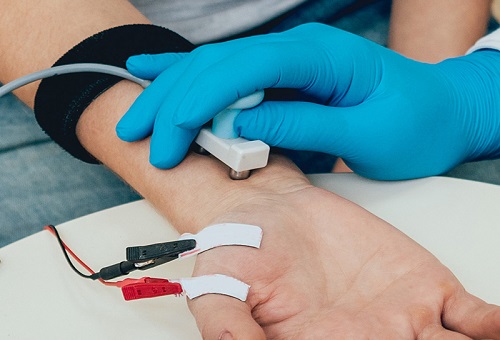Gastroenterology Doctor in Barasat is a branch of medicine focused on the digestive system and its disorders. Gastroenterologists diagnose and treat a wide range of conditions affecting the gastrointestinal (GI) tract. Here are some of the common services provided by Gastroenterology Doctor in Barasat:
Diagnostic Services
- Endoscopy: A procedure where a flexible tube with a camera (endoscope) is inserted through the mouth or rectum to view the digestive tract.
- Upper Endoscopy (EGD): Examines the esophagus, stomach, and duodenum.
- Colonoscopy: Examines the colon and rectum.
- Capsule Endoscopy: A pill-sized camera is swallowed to take pictures of the small intestine.
- Biopsy: Taking small tissue samples from the GI tract during endoscopy for analysis.
- Imaging Studies:
- Ultrasound: Used for imaging organs like the liver and gallbladder.
- CT Scan: Provides detailed images of the GI tract.
- MRI: Offers high-resolution images of soft tissues.
- Barium Swallow or Enema: X-ray studies using barium to highlight areas of the digestive tract.
- Manometry: Measures the pressure and movement in the esophagus or rectum.
- Esophageal Manometry: Assesses the function of the esophagus.
- Anorectal Manometry: Evaluates rectal and anal sphincter function.
- pH Monitoring: Measures the acidity in the esophagus over a 24-hour period to diagnose GERD (gastroesophageal reflux disease).
Treatment Services
- Medication Management: Prescribing medications for conditions like acid reflux, ulcers, inflammatory bowel disease (IBD), irritable bowel syndrome (IBS), and infections.
- Therapeutic Endoscopy: Procedures to treat certain conditions, such as:
- Polypectomy: Removal of polyps during colonoscopy.
- Hemostasis: Controlling bleeding in the GI tract.
- Dilation: Widening of narrowed areas of the GI tract.
- Stent Placement: Inserting stents to keep ducts open.
- Nutritional Support: Developing dietary plans for conditions like celiac disease, Crohn’s disease, and ulcerative colitis.
- Liver Disease Management: Treating conditions such as hepatitis, fatty liver disease, and cirrhosis.
- Gallbladder and Pancreatic Disease Management: Addressing issues like gallstones, pancreatitis, and pancreatic cancer.
- Surgical Referrals: Coordinating with surgeons for conditions that require operative intervention, such as complex cases of Crohn’s disease or colorectal cancer.
Preventive Services
- Screening Colonoscopies: Recommended for adults starting at age 50 (or earlier for those with risk factors) to detect colorectal cancer early.
- Education and Counseling: Providing information on lifestyle changes to prevent GI disorders, such as diet modification, smoking cessation, and weight management.
Specialty Clinics
Some gastroenterologists may also offer specialized clinics for specific conditions, such as:
- IBD Clinics: Focused on Crohn’s disease and ulcerative colitis.
- Hepatology Clinics: Specialized in liver diseases.
- Pancreatic Clinics: Dealing with pancreatic disorders.
Patient Care Coordination
- Multidisciplinary Approach: Working with other healthcare professionals like surgeons, radiologists, and dietitians to provide comprehensive care.
- Follow-Up Care: Monitoring patients with chronic conditions and adjusting treatment plans as needed.
Gastroenterologists play a crucial role in diagnosing, treating, and preventing digestive system disorders, ensuring patients maintain optimal gastrointestinal health.


